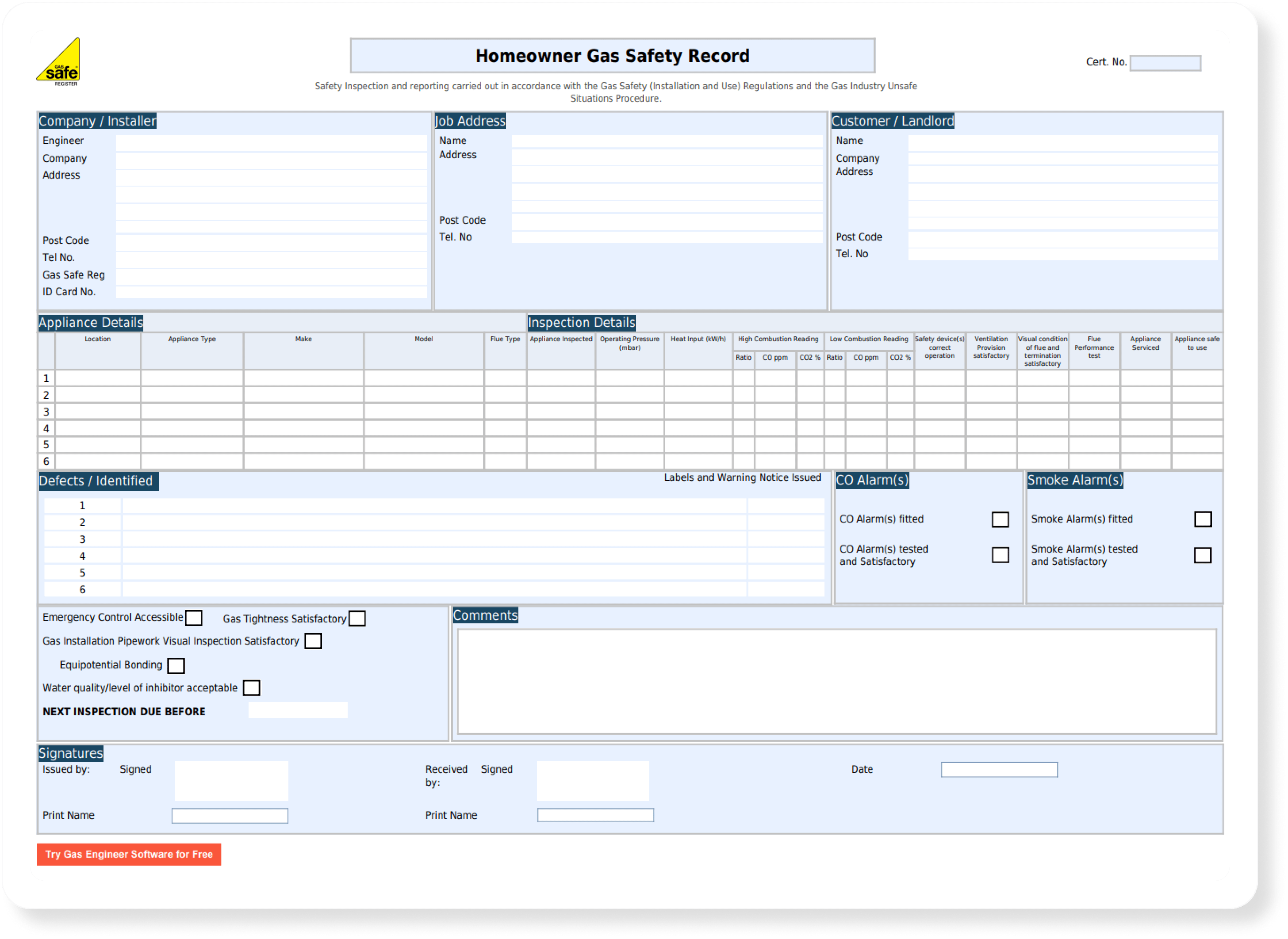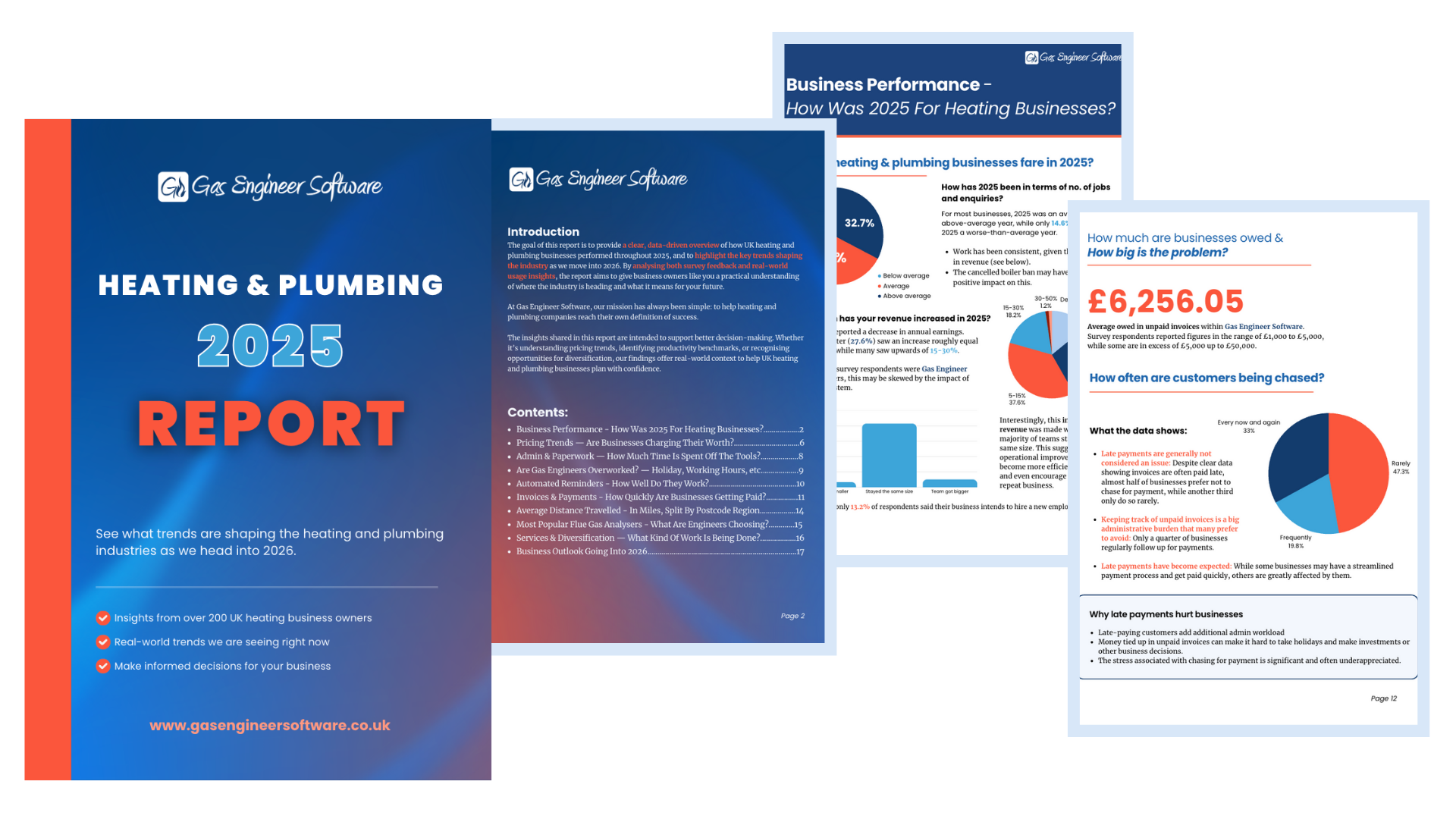Is It Worthwhile Working with Letting Agents?

“Should I take on this extra work from a letting agent?” is a question most gas engineers have asked themselves at some point.
On one hand, there’s an obvious benefit — a steady stream of jobs and invoices ticking over, perhaps even in the quieter months. On the other hand, rates are almost always lower and the admin higher.
Letting agents can be a reliable source of consistent work, but they often come with strings attached. So, how do you know if it’s worthwhile for your business?
KEY TAKEAWAYS
Pros:
- Steady, year-round work that keeps your diary full.
- Great experience for newer engineers who want to build confidence and local reputation.
- Predictable cashflow and exposure to a variety of jobs — not just boiler checks.
Cons:
- Lower rates and tight margins — agents often negotiate bulk pricing.
- High competition and little loyalty — it’s easy to be swapped for a cheaper quote.
- Extra admin and time costs — lots of calls, key collections, and certificate uploads.
Summary: Letting agents can give you stability and experience, but not always freedom or great margins. Aim to use them as part of your mix — not your whole business.
What Working with Letting Agents Looks Like
Work for letting agents typically includes gas safety checks, maintenance, and occasional installations for a portfolio of rental properties.
Most agents work with a pool of local contractors rather than one dedicated partner, so loyalty is rare and competition is constant. You might be on the books with five or six others, all ready to take the next job that comes in.
This type of work is common for both newly qualified engineers looking for stability, and for seasoned tradespeople wanting to fill quieter diary gaps. It’s practical, often local, and keeps the phone ringing — but it’s not without its challenges.
The Pros: Why Some Heating Businesses Stick With Letting Agents
1. Year-round work. Letting agents can keep your diary full with CP12s, breakdowns, and maintenance jobs, even through the summer slump.
2. Varied work. It’s not all safety checks — there’s often a mix of plumbing, repairs, and the odd installation.
3. Builds your reputation. Do a good job, and word spreads fast. Many landlords manage multiple properties and often prefer to go direct once you’ve built trust with them.
4. Great for new engineers. It’s a good way to gain confidence, experience, and a steady flow of income when you’re still getting established.
5. Predictable cash flow. Regular work often means regular pay — even if the margins are a bit tighter.
The Cons: What to Watch Out For
1. Lower rates. Letting agents negotiate bulk pricing, so rates are typically below what you’d earn from private customers.
2. High competition. You might find yourself constantly quoting for comparisons or losing jobs to cheaper contractors.
3. Low standards. Some landlords approve only the bare minimum work — quick fixes rather than lasting solutions.
4. Poor system quality. Expect callouts to older, poorly maintained systems.
5. More admin. There’s often a lot of chasing, emailing, and uploading certificates to different portals. Plus, you’ll have to fill out supplier forms from the letting agent.
6. Little loyalty. Agents will switch contractors in a flash if someone offers a better price or faster turnaround.
The Hidden Costs New Engineers Often Miss
There’s a reason some engineers quietly move away from agency work after a year or two — it can come with hidden costs.
Time costs, for one. Running around for key collections, unpaid quoting, waiting around for access, and extra admin can eat into your actual earning time. And if you’re relying on one or two agencies for most of your work, it only takes one of them to change contractors and your workload disappears overnight.

When It’s Worth Doing — and When It Isn’t
Working with letting agencies is worthwhile if:
- You’re new to the trade and need experience and a steady income.
- You want to fill quiet periods or top up your schedule.
- You treat agency work as part of a mixed-income strategy.
- You’re building your reputation and want consistent work.
It’s probably not worth it if:
- You’re established and can fill your diary with higher-paying private work.
- You’re already turning away jobs.
- You’re trying to grow a premium, specialist, or niche service.
How to Make It Work for You
If you do decide to work with letting agents, the key is to stay in control of your time and margins.
- Keep admin under control. Use a digital job management like Gas Engineer Software to log jobs, send certificates, and issue invoices quickly — no more endless paperwork.
- Set clear pricing upfront. Avoid vague agreements that lead to disputes later. → How to calculate an accurate hourly rate.
- Don’t be afraid to say no. Protect your time and standards.
- Work with good agents. The best ones respect your professionalism and value your reliability.
- Use it as a stepping stone. Build your business alongside — not under — agency work. Keep marketing to private clients and building repeat business through service reminders.
- Where possible, build relationships directly with landlords. It’s often more rewarding and long-term.
💡 TIP
If you’re managing lots of agency work, Gas Engineer Software can save you hours each week — logging jobs, creating certificates, and sending invoices automatically. That way, you spend less time chasing admin and more time earning.
In summary…
Working with letting agents can be a smart move — especially early in your career or during quieter periods — but it’s not a path to long-term freedom unless you manage it carefully.
Used wisely, it’s a valuable part of a healthy business mix. But the real goal is independence — choosing the right jobs, at the right price, with the right customers.
Keep your standards high, your systems tight, and your business will always stay in your control.


